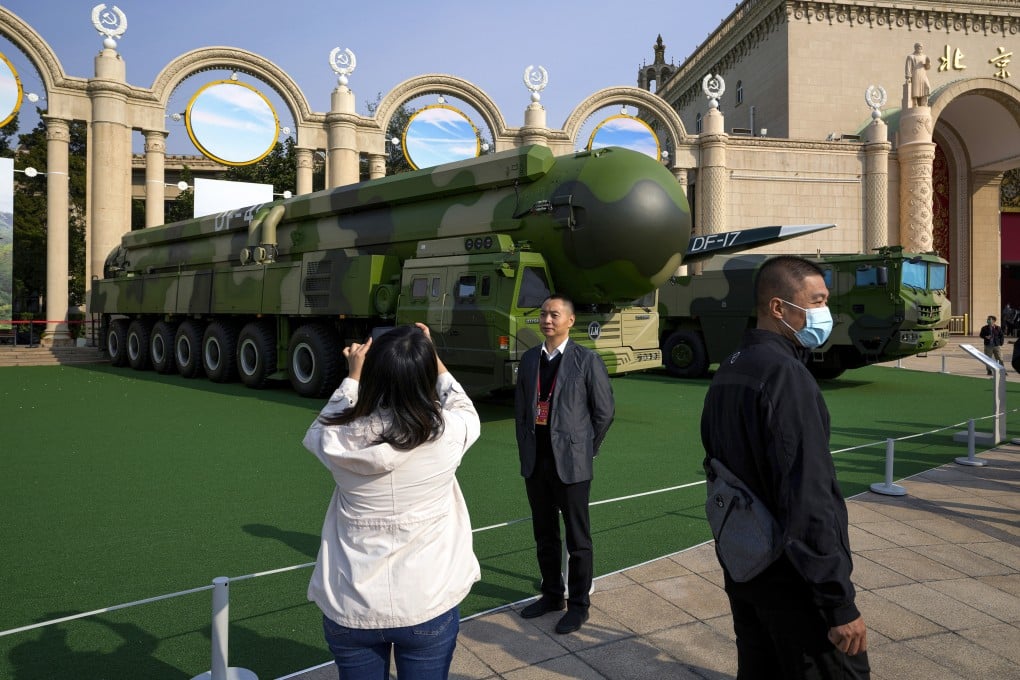China underlines ‘no first use’ nuclear weapons policy as it seeks stronger power to deter
- China’s nuclear policy is the ‘most responsible and transparent’, disarmament affairs ambassador tells UN General Assembly
- Xi Jinping’s party congress note on need for ‘strong system of strategic deterrence’ seen as a nod to bigger nuclear arsenal

Addressing a UN General Assembly First Committee session on non-proliferation, the Chinese ambassador for disarmament affairs, Li Song, underlined his country’s “solemn” commitment to no pre-emptive use of nuclear weapons “at any time and under any circumstances”.
“China has solemnly committed to no first use of nuclear weapons at any time and under any circumstances, and not using or threatening to use nuclear weapons against non-nuclear-weapon states or nuclear-weapon-free zones unconditionally,” Li told UN delegates.
“China firmly pursues a national defence policy that is defensive in nature.”
“China’s nuclear strategy and policy have been long-standing and consistent, with a high level of stability, continuity and predictability that are unique among nuclear weapon states as well as being the most responsible and transparent,” Li added.